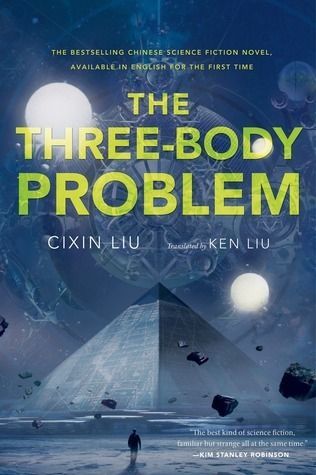
The Three-Body Problem
Set against the backdrop of China's Cultural Revolution, a secret military project's signal is received by an alien civilization on the brink of destruction, which plans to invade Earth; meanwhile, on Earth, different camps start forming, planning to either welcome the superior beings and help them take over a world seen as corrupt, or to fight against the invasion.
Reviews
aw.@aimeamie
vindhya@vindh
Ricky@rickynaarea
Caroline@marigold
nuha ✨️@nuhasahir
Ella@ellajs
Ghee@clubsoda
Throckmorton@throckmorton
div. ☆@sunsidecoast
L@llopes
julia@juliwaves
veralyn@sulleyveralyn
Umit Bulut@umi
Chris Dailey@cris_dali
Princess Doe @princessdoe
Sebastian Leck@sebastianleck
Erwin Lemuel Oliva@erwinoliva
Sanjay Krishna @sjaykh
Wingyan Chan@wingyan
lala@polijus
elizabeth@ekmclaren
Luke Harkness@lukesblog1
Lindy@lindyb
Pedro Figueiredo@pfig
Highlights
vindhya@vindh
Caroline@marigold
Tem Nugmanov@temirlan
Page 28
Jasper@jpev19
Jasper@jpev19
Page 26
Sven Schmidt@sven
Page 108
Edward Steel@eddsteel
Edward Steel@eddsteel
Edward Steel@eddsteel
Edward Steel@eddsteel
Amira BEN@amirasreading
Page 43
Amira BEN@amirasreading
Page 28
Amira BEN@amirasreading
Page 17
Truman M Halladay@tru__man